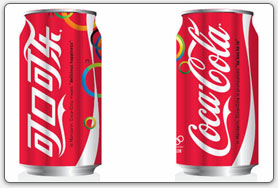Top 7 Tips for Effective Chinese Copywriting
Quality Chinese translation goes beyond simple translation of words and sentences. Effective Chinese localization also requires good copywriting to convey the intent of your original message to the Chinese marketplace. Chinese translation for mainland China should take into consideration Chinese cultural, legal and other factors specific to the Chinese language and Chinese marketplace. This blog covers critical issues to consider when considering Chinese translation (also known as Chinese localization).
Critical Issues for Chinese Copywriting
(1) Avoid long sentences
Chinese people like shorter sentences. A good Chinese translator must know how to break longer sentences from western language source content into several short sentences and sub-sentences. This step is essential for Chinese copywriting to make the translation more reader-friendly for Chinese consumers. Sometimes, it is even necessary to change the structure of an entire paragraph to make it read smoothly in Chinese.
Example: [COMPANY NAME]’s reputation as a customer oriented problem solver has been long recognized.
A literal translation like “[COMPANY NAME]享有以客户为导向的难题排解能手的美誉。” reads awkwardly in Chinese. The following translation is much more natural after copywriting: “[COMPANY NAME]坚持以客户为导向,善于为客户排忧解难。”
(2) Communicate your message’s implied meaning
Find ways to convey the implied meaning of the original source content into Chinese. This is especially true when translating persuasive, marketing materials into Chinese.
GPI translated “Compliments of the chef” as “大厨敬送”. By using 2 one-character Chinese verbs, the implied meaning of “it is complimentary and serves as a best wish from the chef/restaurant” is well expressed.
(3) Passive verbs may be perceived as negative
Try to use active Chinese verbs instead of Chinese passive verbs. Chinese consumers consider active verbs to be more powerful and consider them to be easier to understand. Passive verbs in the Chinese language are usually used to express unfavorable meanings.
“She is loved by the whole family” should be translated as “全家都爱她” instead of “她被全家人爱”. The second example, with a passive verb, sounds like “she” neither wants nor appreciates the love from her family. A better source phrase would be “The whole family loves her.”
(4) Use idioms and Chinese proverbs for effective results
“Add a pupil to the eye of the dragon” – This Chinese idiom means “Bring the painted dragon to life by adding the pupils of its eyes” – Chinese idioms and proverbs have profound meanings and are greatly admired by Chinese people, due to their implied cultural and historical elements. In Chinese copywriting, the addition of appropriate Chinese proverbs and idioms improves content readability and receptivity by Chinese consumers.
(5) Be aware of legal issues
Chinese Advertising Law expressly prohibits any advertising that uses words like “the highest-level” or “the best” etc. If you want to run advertisements in China, you must pay special attention to ensure that your Chinese copywriting does not produce illegal text. Carlsberg beer could not use their famous tagline “Probably the best beer in the world” in China.
(6) Effective Chinese branding and trade names
Effective Chinese brand names come from a deep understanding of the Chinese market and imaginative use of product connotations in selection of Chinese characters. Well localized Chinese brand or product names play a key role in Chinese market expansion. Most Chinese consumers find it hard to remember brand/product names in western languages. GPI (Globalization Partners International) strongly recommends that major brand/product names should be carefully localized in the Chinese language before a product launch takes place in the Chinese market.
 The ideal Chinese brand name should “sound like” its western counterpart, while the Chinese characters used to express the brand name should imply positive meanings for product quality to the target Chinese market. Strong Chinese brand names helped the following western companies achieve great success in China:
The ideal Chinese brand name should “sound like” its western counterpart, while the Chinese characters used to express the brand name should imply positive meanings for product quality to the target Chinese market. Strong Chinese brand names helped the following western companies achieve great success in China:
- Coca Cola 可口可乐 (Tasty & Pleasant)
- Mercedes-Benz 奔驰 (Gallop)
- Ikea 宜家 (Good for Home)
- McDonalds 麦当劳 (Work for your food)
(7) Follow current trends in the Chinese language
The Chinese language changes over time, just like other languages. This process is speeding up due to the tremendous growth of the Chinese market and the frequent introduction of new products. A good Chinese translator should read current Chinese media extensively and maintain an up-to-date understanding of current Chinese language trends. It may be necessary to periodically update some Chinese phrases used to describe your product or services in China, to keep your branding and message fresh as popular Chinese words take on new meaning.
The Chinese phrase 宾馆 used to mean “luxurious hotel.” In recent years, thousands of Chinese motels have also named themselves 宾馆. As a result, another word, 酒店, has gained more popularity for upscale hotels. So, if you translate a luxurious hotel name into the older expression, “[COMPANY NAME]宾馆”, you will hurt the hotel’s image with this out-of-date and “cheap” motel-oriented name.
Summary
In summary, Chinese is a rich language, layered with many meanings. Brand name creation should include Chinese words with positive, appropriate meanings. The use of idioms or Chinese proverbs can enhance your message for the Chinese marketplace. Sentence and paragraph structure in well-formed Chinese may be starkly different than your source language materials. All of these issues must be carefully considered by your translation services agency or localization partner. Highly qualified Chinese linguists with an up-to-date grasp of current connotations associated with popular Chinese words are essential to successful Chinese copywriting and Chinese translation and localization.
